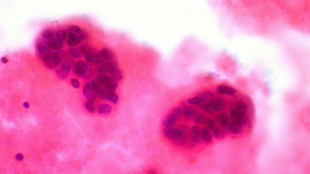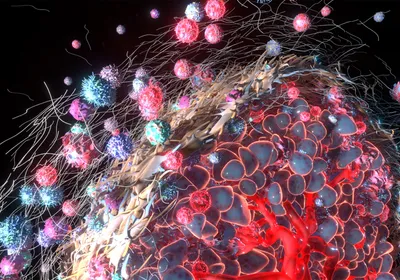 Metastatic breast cancerFLICKR, ED UTHMANResearchers from Arizona State University in Tempe have created an inexpensive blood test that can detect several common cancers based on the immune responses they evoke. They used arrays of randomly generated peptides to bind antibodies from human blood samples belonging either to healthy controls or to people with one of five different cancers. Based on the binding patterns—or immunosignatures—the researchers were able to distinguish between all five cancer types. The team also used another array of randomly generated peptides to differentiate among a broader range of cancers and other diseases. The results appeared today (July 14) in PNAS.
Metastatic breast cancerFLICKR, ED UTHMANResearchers from Arizona State University in Tempe have created an inexpensive blood test that can detect several common cancers based on the immune responses they evoke. They used arrays of randomly generated peptides to bind antibodies from human blood samples belonging either to healthy controls or to people with one of five different cancers. Based on the binding patterns—or immunosignatures—the researchers were able to distinguish between all five cancer types. The team also used another array of randomly generated peptides to differentiate among a broader range of cancers and other diseases. The results appeared today (July 14) in PNAS.
“The idea is elegant, but there are clearly things missing,” said Antonia Vlahou, a clinical proteomics researcher at the Biomedical Research Foundation of the Academy of Athens in Greece who was not involved in the study. But she said that it was unclear from the paper how exactly the peptide array and immunosignatures work, since it is not possible to tell which antibodies are binding the peptides. “We have to know what exactly binds to what to understand its relevance to the disease,” she said. “A much better characterization of the features that are being measured is needed.”
“I have to admit it sounds almost too good to be true,” said Harald Mischak, who studies proteomic biomarkers at the University of Glasgow.
Phillip Stafford, who ...






















